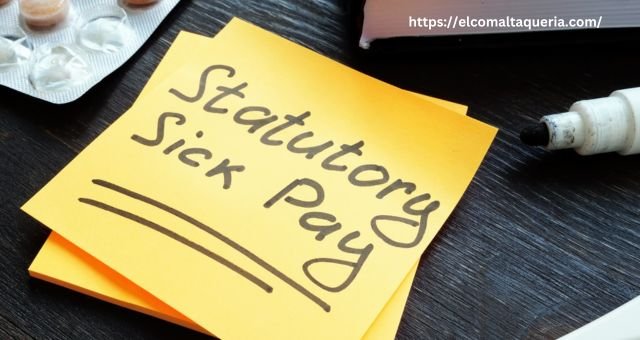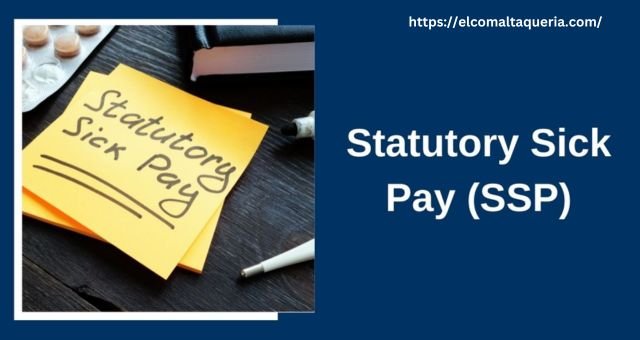
Statutory Sick Pay: All You Need To Know About
There’s nothing worse than you have to do your office work at home when you are sick or feeling unwell. However, saying to your employer could be hard that you are feeling unwell. But it’s very significant that you take a break when it is required. Certainly, you cannot give your hundred per cent when you are feeling well. In this situation, statutory sick pay can assist you while you are taking several off to recover. This article will provide you with all the detailed information regarding this platform. Hence sticking to this article is a must to consider to get more information. Let’s start this critical ahead and make yourself into it and continue reading. Let’s start this article ahead and make yourself into it and continue reading.
What is Statutory Sick Pay?
Statutory sick pay is the minimum amount have to pay to their employee if they are off work due to some illness or an extended time. Further, this step is taken by the United Kingdom. It is evident for more than three consecutive workdays, but less than 28 weeks. Moreover, the employee who frequently mentioned as earning above the lower earnings limit. The days which the worker would usually have operated as denoted as qualifying days. However, employees have to come across definite eligibility measures to succeed in SSP. Furthermore, these three are unpaid if the employee has passed for SSP in the time span of the previous 8 weeks. These are known as waiting days. SSP was similarly paid from the first qualifying day if the worker was self-isolating on medical guidance associated with COVID-19. Evidently, SSP was £109.40 each week in the years 2023 and 2024.
What are the categories that employees do not get paid?
Workers on strike.
Workers that paid less than the national insurance lower earning limits, for instance, £123 for the 2023/24 tax year.
The operator who hasn’t worked under a contract of employment.
Workers who are on the leave of Maternity Allowance or Statutory Maternity Pay.
Employees who recently had a receipt of social security benefits within the last 57 days.
Workers who recently got off from jail.
Who is eligible for statutory sick pay?
Workers who have paid class one national insurance, but are unable to work due to some illness are eligible for SSP. Further, Worker can apply for it from the fourth day of their sickness Consecutively. Certainly, the first three days are known as waiting days if you have Formerly applied for SSP in the same. Workers would get Euro 120 Even more each week to claim SSP. In fact, Workers who have worked for less than two months are also eligible for SSP. In addition, workers who work part-time are still eligible for SSP, but the sick payment amount remains the same, no matter the number of hours you work.
What are the steps to claim statutory sick pay?
Workers have to contact their employer when you will get to know that they will be off sick for more days. The minimum days are four days to claim statutory sick pay. The Employer will pay the money in the normal way that you normally receive your salary. However, it could be monthly or weekly according to your traditional Payday. Indeed, seven days is the normal time to notify your employer of a long sickness. Certainly, it is mandatory that you have to report your illness to your employer quickly preferably from the first day off on leave. If not there is a reason you could lose your claim of statutory sick pay. Indeed, seven days is the standard time to update your employer on prolonged sickness.
What occurs when SSP ends?
When your SSP is about to finish or finished, your employer will send you an SSP1 form. The process will take seven days of your SSP ending if it suddenly ends because you are no longer qualified. Then the employer will provide you with the SSP1 form Before the opening of the 23rd week if Your illness is predicted to surpass the SSP deadline. The form will be sent to you through online or by post. The worker can use the SSP1 form to upkeep your application for universal credit or employment and support allowance. In this case, you are not able to work. Thereafter, when the worker is ready to return to work, your employer might ask you to fill out of form to check why you were off sick.
Is Statutory Sick Pay taxable?
Statutory Sick pay actions as a short-term salary when an employee is unable to work. However, it means that it is still tax and national insurance deductible. The typical deduction is prepared on your SSP. In Some situations, SSP might mean that your annual income decreases underneath the regular tax ranges. If this occurs, Workers don’t have to pay tax and national insurance on their SSP.

Final words
Indeed, it’s a great initiative that has been taken by the United Kingdom to support the employees. Further, SSP is paid by an employer to employees those who are unable to work due to sickness for longer than three consecutive days. This carries us to the end of this article if we have reached this far by reading Sideways and discovering information, then let us know with your comments. Toddles.













